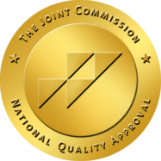Is social anxiety and addiction linked? An article released by the Anxiety and Depression Association of America (ADAA) indicates that, although most people experience anxiety or substance abuse independently, having both at the same time can become a vicious cycle. The symptoms that occur with one disorder can worsen the other\'s symptoms, escalating the severity of both.1
Social anxiety, in particular, can lead individuals to use substances in place of social anxiety medication. Drugs and alcohol may become a way to tolerate social situations, leading to addiction. This link is why a social anxiety test might be necessary to identify whether anxiety needs treatment.
Who Should Take a Social Anxiety Test?
Basic social anxiety tests are found online for free. The ADAA offers a simple version for those who suspect that they might have social anxiety.2 However, most online social anxiety tests won\'t provide a diagnosis. Only a licensed therapist or physician can provide one, though they can give an idea of where a person\'s anxiety falls. Social anxiety testing allows people to correctly identify their problems and carry out interventions in the right direction. For example, a similar illness called avoidant personality disorder may look like social anxiety, but the treatments differ.
What is Social Anxiety Disorder?
Not all social anxiety is alike. It\'s typical for people to experience a certain level of stress in social settings, depending on their environment. For some, social situations can bring about intense fear. Some people feel severe social anxiety only in new scenarios or around strangers. Others may feel social anxiety all the time, even around friends and family. A person with a social anxiety disorder is often afraid of being judged, rejected, or ridiculed by others. This fear can prevent one from meeting new people, starting a new job, or even performing daily tasks like grocery shopping or walking down a crowded street.
According to the ADAA, 15 million people struggle with social anxiety.3 Social anxiety is more than being shy. Someone with social anxiety can experience physical symptoms resulting from their anxiety: increased sweating, trembling, heart palpitations, nausea, and hyperventilation. These social anxiety symptoms can lead to further feelings of embarrassment -- escalating the agitation that accompanies social anxiety.
One can imagine how debilitating these feelings can be and how a person may want to self-medicate to stop the anxiety. To dampen the social anxiety fears and lead a \"normal life,\" some seek help from alcohol or drugs.
Signs and Symptoms of Social Anxiety Disorder
Some people are shy or feel uncomfortable even in familiar social situations. Comfort levels vary from person to person, depending on whether one is naturally introverted or naturally outgoing. Shyness or introversion is typical and, for the most part, doesn\'t interfere with a person\'s daily activities or quality of life. In contrast, social anxiety disorder causes so much discomfort that it impedes functioning in work, school, or relationships.
When anxiety symptoms occur occasionally, they may be due to the usual feelings associated with a reserved personality. However, when social anxiety symptoms are persistent and pervasive, this indicates social anxiety.4
Behavioral Signs and Symptoms
- Persistent worry about embarrassment
- Spending time at events trying to endure fear and anxiety
- Constant fear of situations where people might judge a person
- Intense fear about talking with strangers or interacting with others
- Spending time before and during an event expecting the worst outcomes
- Perseverating after social events about the perceived personal flaws or mishaps that occurred
- Fear of the appearance of physical symptoms resulting from social anxiety (blushing, sweating, trembling, etc.)
- Ongoing avoidance of situations where the person might be the center of attention (birthday parties, speeches, public speaking, photos, etc.)
Physical Signs and Symptoms
- Muscle tension
- Blushing
- Increased heart rate
- Trembling or shaking
- Sweating excessively
- Nausea or vomiting
- Difficulty breathing or breathing quickly
- Difficulty thinking or making decisions (as if the mind has gone blank)
- Lightheadedness or dizziness
Cognitive Distortions
- Catastrophizing follows the worst-case scenario. Thoughts automatically gravitate towards the worst possibilities, despite the extremely rare probabilities that they will occur.
- Filtering involves picking and choosing the negative aspects of a situation rather than seeing the situation as a whole.
- Polarized thinking involves thoughts that tend towards two edges of the spectrum of \"good\" or \"bad,\" with minimal possibility for what could occur in between. For example, a person may see an upcoming day as \"the best day in the world\" or \"the worst day ever,\" rather than state, \"it will be just like any other day.\"
- Personalization assumes that adverse events are because of the person with social anxiety. Events are seen in a subjective, personal manner rather than an objective one. For example, a person will think, \"She didn\'t smile at me because she hates me,\" rather than think, \"She didn\'t smile at me because she\'s probably having a bad day.\"
- Overgeneralizing means coming to a conclusion based on one piece of evidence. For example, if a person with social anxiety spilled a drink once at a party, they might think, \"I\'ll never go to a party again. I\'ll always spill my drink because I\'m always clumsy.
The thought processes that cognitive distortions create can worsen social anxiety. The good news is that it\'s possible to change these thought processes.
Social Anxiety Test
Not all social anxiety tests are created alike. Free anxiety tests available online from legitimate establishments are helpful, but they don\'t offer a diagnosis. They provide a general idea of whether a person may or may not have social anxiety or another type of illness like an avoidant personality disorder. A therapist or physician, however, can diagnose social anxiety disorder using combined methods.
DSM 5 Criteria and Scoring
With the most recent changes in the Fifth Edition of the Diagnostic and Statistical Manual of Mental Disorders (DSM V), the American Psychiatric Association (APA) issued social anxiety disorder guidelines with self-report scales.5 The social anxiety test issues through the APA are brief, easy to understand, and copyright-free. Research indicates that these tests and scoring systems are statistically valid and have internal consistency.6
The social anxiety test consists of a review of a person\'s recent history with questions such as, \"During the past seven days, I have distracted myself to avoid thinking about social situations.\" The person then answers, choosing one from the following: never, occasionally, half the time, most of the time, all of the time. Each answer aligns with a number rating from 0-4 and is added up and divided upon completion by a clinician for a total average score which will signify severity. This score isn't definitive for a diagnosis but gives a therapist or a physician a clinically helpful guide to follow. A thorough exam typically accompanies a social anxiety test, ruling out other illnesses.
A disorder that\'s frequently mistaken for social anxiety disorder is an avoidant personality disorder. Though both involve intense fear and avoidance of social situations, they have significant differences. Social anxiety disorder stems from worry and fear, mainly of being embarrassed or judged. An avoidant personality disorder is defined by feelings of inadequacy and social inhibition, which stem from low self-esteem.
Causes of Social Anxiety Disorder
A social anxiety disorder may come from more than one biological or environmental factor. Very often, the causes are complex and intertwined. Some causes include:
- The brain\'s amygdala might have an elevated fear response, causing increased anxiety.
- Social anxiety can be inherited either through genetics or through a learned response.
- Social anxiety may stem from a child\'s caregiver environment. A social anxiety disorder may appear if parents are anxious, controlling, or over-protective.
- A person can experience physical trauma, bullying, or a distressing incident which can trigger social anxiety.
Treating Social Anxiety Disorder and Addiction
It\'s vital to manage social anxiety disorder. If left untreated, social anxiety can significantly disrupt someone\'s life. When addiction is part of the picture, it\'s even more crucial to address social anxiety. Because social anxiety might be at the root cause of substance use, treating it is integral to long-term sobriety.
How to Overcome Anxiety
Cognitive Behavioral Therapy (CBT) and cognitive restructuring can train one with social anxiety to see social situations differently. CBT teaches the mind how to overcome anxiety through behavioral and thought modifications.7 Cognitive restructuring helps change the cognitive distortions and negative thinking that come with social anxiety. Both these interventions teach a person to modify their thought processes.8
Self-help practices like yoga, mindfulness, and controlled breathing are also effective ways to manage social anxiety. If warranted, a physician may prescribe anti-anxiety or social anxiety medication to relieve distress. Support groups are also helpful in addressing the alienation that people with social anxiety feel.
Addiction Treatments
When an individual has social anxiety disorder along with an addiction, it\'s called a dual-diagnosis. A dual-diagnosis is a co-occurring mental illness with an addiction. Treatments for the addiction may require detox to eliminate the drug or alcohol from the system, along with inpatient or outpatient rehabilitation. A sober-living environment after rehabilitation may demand continued treatment for social anxiety to maintain sobriety. A sober living environment is also a new social setting, which may trigger a person to return to old habits. The ultimate goal is to implicate cognitive techniques and social anxiety medication instead of drugs or alcohol, allowing one to lead a life full of opportunities.
Resources
-
- https://adaa.org/understanding-anxiety/social-anxiety-disorder/social-anxiety-and-alcohol-abuse
- https://adaa.org/screening-social-anxiety-disorder
- https://adaa.org/understanding-anxiety/social-anxiety-disorder
- https://www.nimh.nih.gov/health/publications/social-anxiety-disorder-more-than-just-shyness/index.shtml
- https://www.psychiatry.org/psychiatrists/practice/dsm
- https://pubmed.ncbi.nlm.nih.gov/27479097/
- https://www.mayoclinic.org/tests-procedures/cognitive-behavioral-therapy/about/pac-20384610
- https://www.psychologytoday.com/us/blog/in-practice/201301/cognitive-restructuring
.


